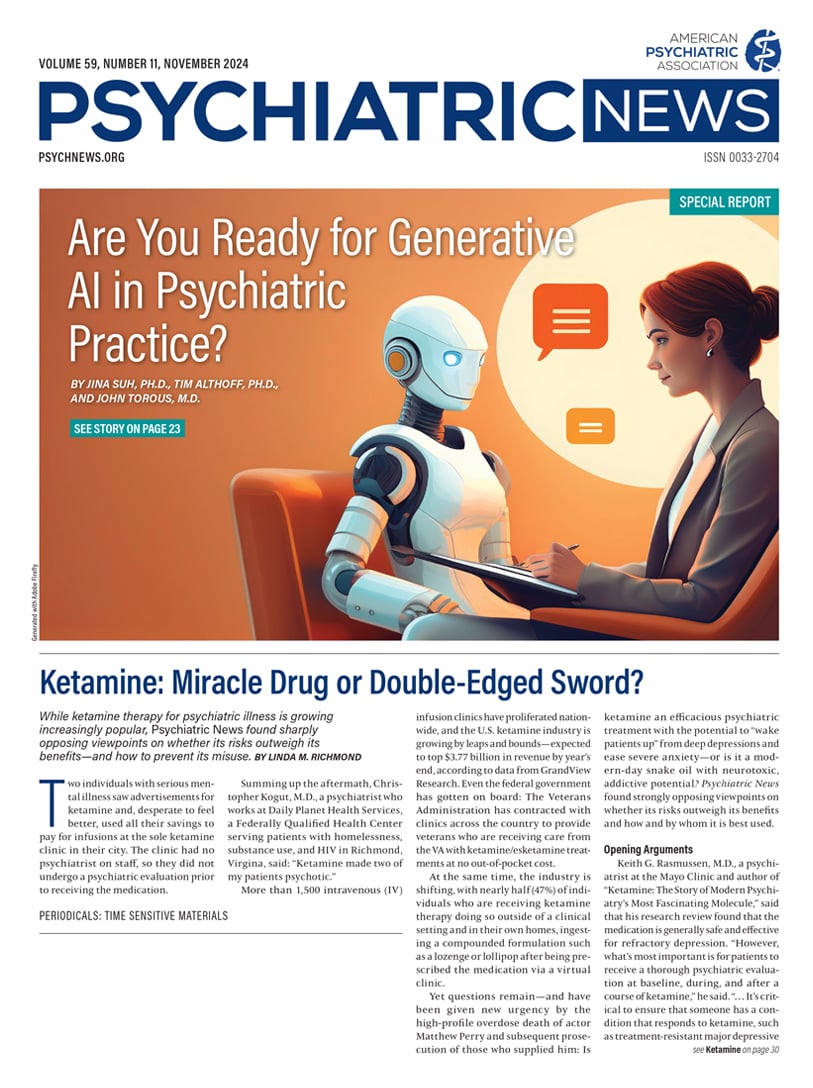Advocacy is a major reason why physicians should join and be active in their professional organizations. It benefits our patients and our profession. We pursue careers in medicine with the goal of relieving suffering and making people’s lives better. Our training is focused on directly working with individuals to achieve this.
But soon, we come across systemic barriers, including social determinants of health, that get in the way of our helping our patients. Advocacy helps us address these structural impediments and create system-wide changes that can lead to more inclusive, accessible, and effective mental health care for all. There is strength in numbers, and advocating collectively not only is more effective but also helps us learn from others about issues and how to be effective in our advocacy.
Federal and state policies directly influence the accessibility, affordability, and quality of mental health services. Twenty years ago, many insurance programs did not cover psychiatric treatment at all, or the coverage was more restrictive than for other medical conditions, with higher deductibles, higher copay, less reimbursement, and limitations on services. APA fought hard and astutely for many years to address these disparities, finally resulting in the passage of the landmark Paul Wellstone and Pete Domenici Mental Health Parity and Addiction Equity Act of 2008.
I was privileged to participate in these advocacy efforts in those crucial years along with other APA colleagues, working under the guidance of our able Advocacy, Policy, and Practice Advancement team. Our advocacy efforts in various state legislatures have resulted in similar equity laws at the state level—even as we are fighting an ongoing battle to ensure fair implementation of the rules. (Editor’s note: See “
Historic Parity Rule Closes Loopholes and Improves Access to Timely Care.”)
Indeed, many psychiatrists do not realize how much they benefit from the advocacy efforts of APA and our district branches and state associations. Along with mental health parity, we are also advocating for increasing residency slots to ameliorate workforce shortages; promoting collaborative care to make a psychiatrist’s expertise more widely available; reducing student loan debt for residents and early career psychiatrists; providing adequate reimbursement for psychiatric services; ensuring that antidiscrimination laws protect individuals with mental health conditions from unfair treatment in the workplace, educational settings, and other areas of society; and providing adequate funding for research.
APA holds advocacy training every year for members. On alternating years, we hold a Federal Advocacy Conference and a State Advocacy Conference. The Federal Advocacy Conference is held in Washington, D.C., where members learn about important federal policy and legislative issues, then visit Capitol Hill to meet and lobby their congressional representatives. State Advocacy Conferences focus on various state issues and train attendees on advocating with state legislators.
The availability of virtual meetings with our legislators has made lobbying much more feasible and less time-consuming. I urge members who are experienced in lobbying to inspire their inexperienced colleagues to join them. And I encourage all members to visit
psychiatry.org/psychiatrists/advocacy to learn about federal and state advocacy issues, access advocacy training videos, contact your legislators, sign up for advocacy alerts, join our Congressional Advocacy Network, and contribute to the APA Political Action Committee. ■

